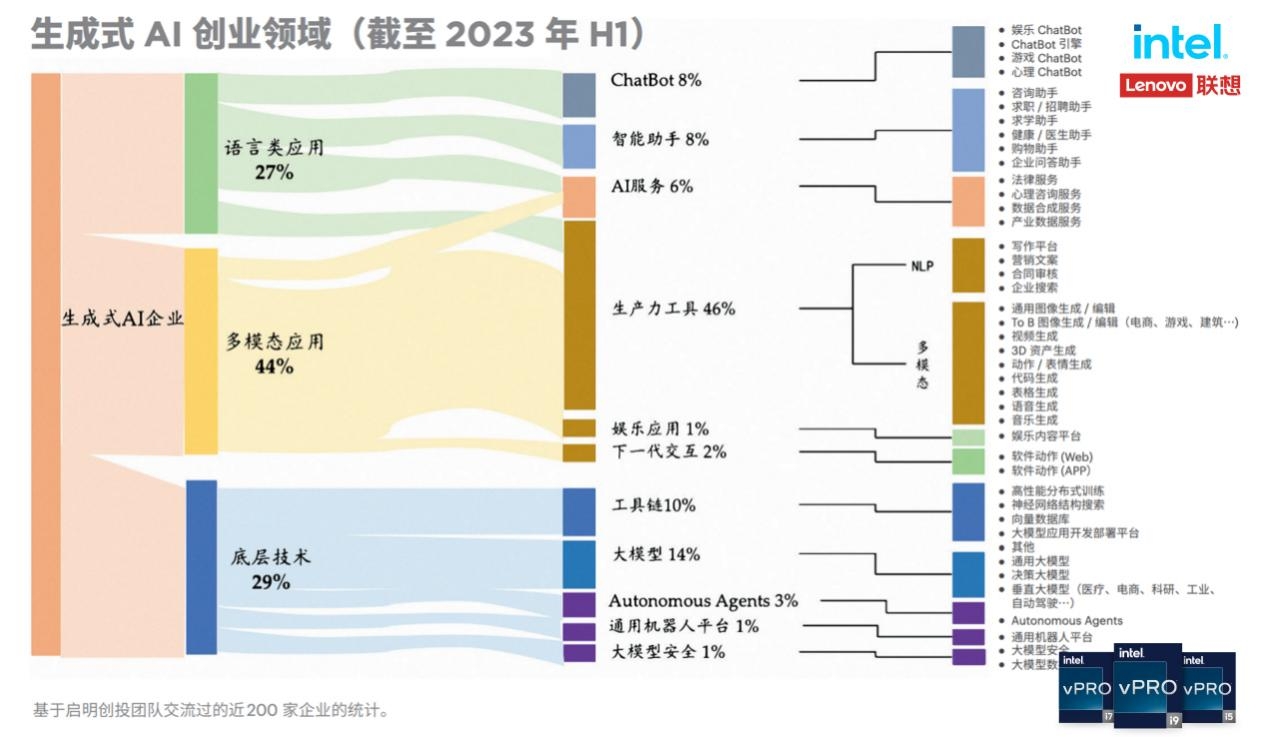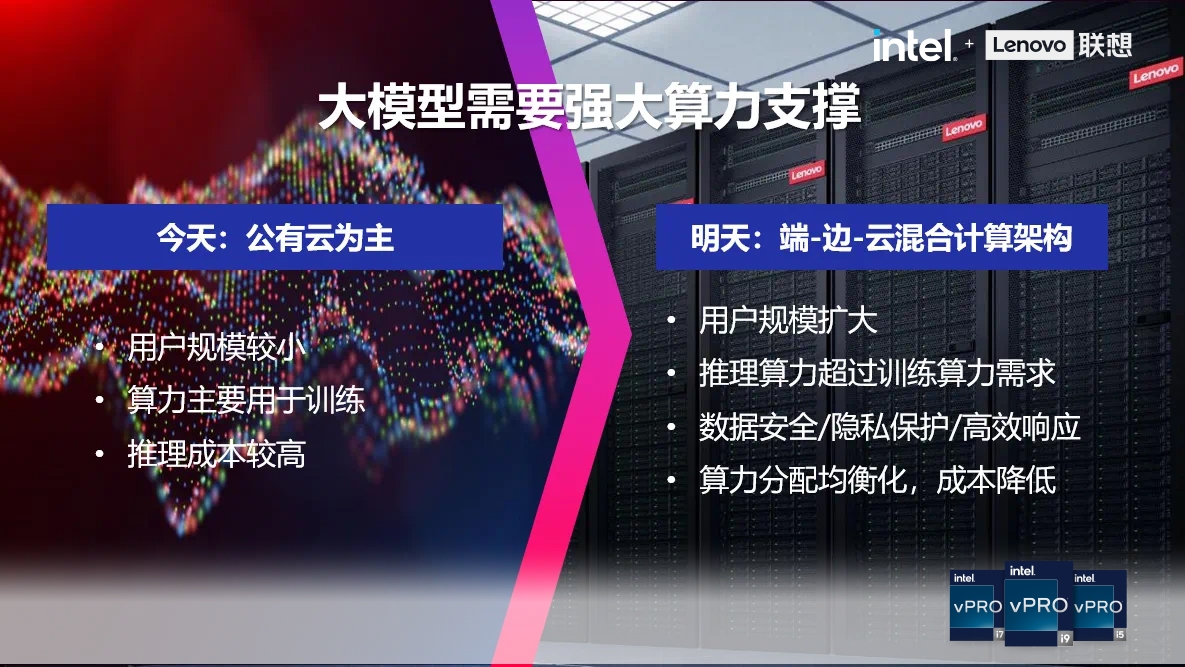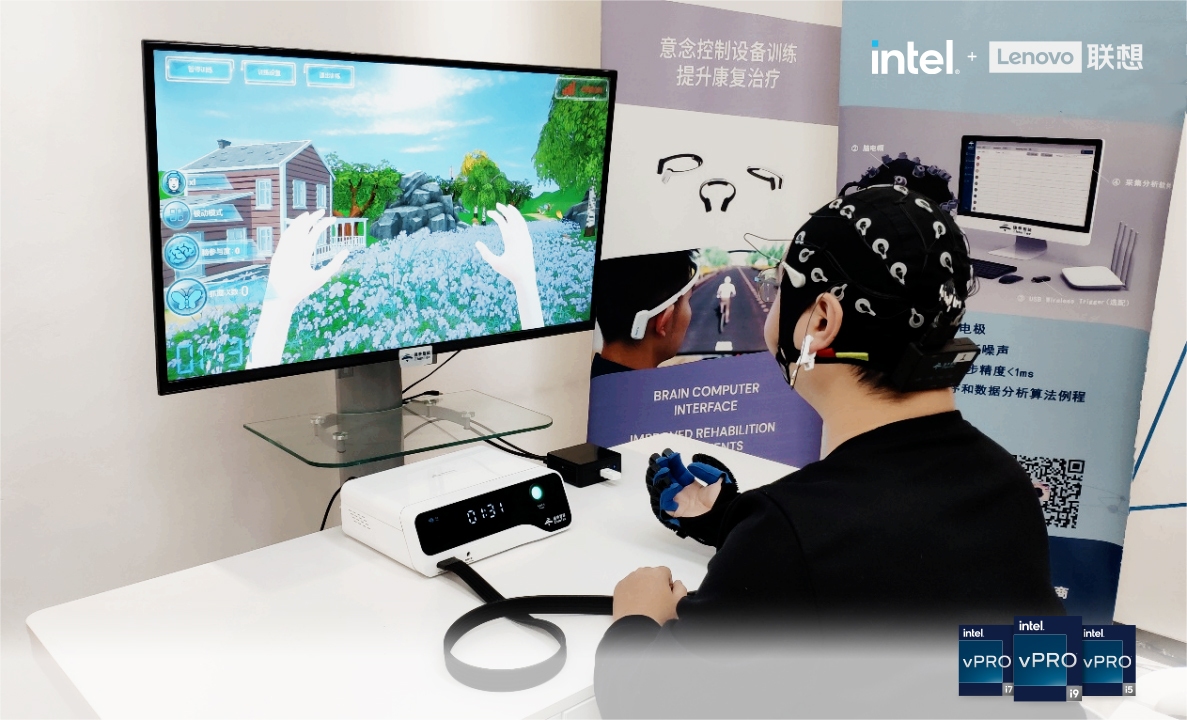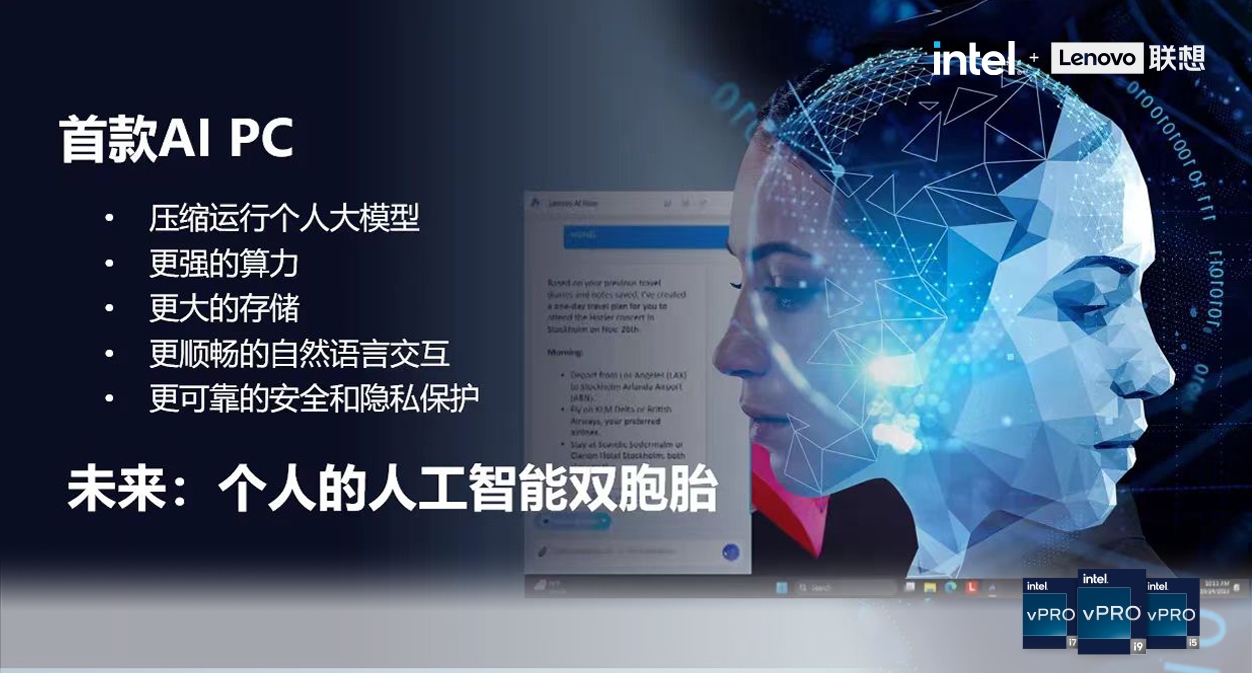How Can SMEs Find the Right Path for Intelligent Transformation in the Face of the Generative AI Wave
-
From 6 AM to 11 PM, visiting all the trending spots, trying every viral snack—whether it's fun or not doesn't matter, the most important thing is getting the perfect shot. This 'special forces-style' tourism exhausts modern travelers.
In psychology, this state is called 'Fear of Missing Out' (FOMO). FOMO not only drains people emotionally but can also cloud judgment, leading to poor decision-making.
Business executives are similarly influenced by FOMO. Especially for startups, which carry the labels of 'innovation' and 'pioneering,' they must remain highly sensitive to new trends, technologies, and products. However, entrepreneurs cannot afford to lose themselves in the flood of novelties, expending vast amounts of energy on 'embracing change' and 'trial and error.'
There is no doubt that the technological revolution brought by generative AI will impact the business models of all types of enterprises. Entrepreneurs in generative AI are already taking action to address business scenarios across various industries.
As Qiming Venture Partners pointed out in its 'Generative AI 2023' report, large model startups are beginning to diversify. While general-purpose large model startups are still flourishing, many industry-specific vertical model companies are emerging, primarily focusing on healthcare, e-commerce, research, industry, autonomous driving, and robotics. Startups in intelligent assistants with industry attributes are increasing, such as those in job search, recruitment, education, law, health, shopping, and enterprise knowledge Q&A, with personal and employee assistant startups continuously emerging.

Under these circumstances, small and medium-sized enterprises (SMEs) have a mixed attitude toward generative AI: they fear missing out but also fear reckless adoption. Business owners worry that their business models may be rendered obsolete by AI, and they believe that only by reacting faster than larger enterprises can they seize market opportunities.
The willingness of small and medium enterprises (SMEs) to invest in digital transformation also reflects their resistance to being trapped by FOMO (Fear of Missing Out) sentiment. The "Top Ten Insights on SME Digital Transformation" released at the 2023 National SME Digital Transformation Conference shows that SMEs have strong willingness for digital transformation with high future investment expectations. 65% of enterprises increased their digital transformation investment in 2022 compared to 2021, and 73% of surveyed enterprises plan to increase investment in the next three years.
Hope coexists with anxiety. How to promote intelligent transformation across industries, especially for the vast number of SMEs, and accelerate the deep integration of the digital economy with the real economy, is not only a necessity for industrial restructuring and high-quality economic growth but also the path to growth for SMEs.
"The good news is that compared to large enterprises, SMEs often have shorter processes, more agile decision-making, simpler technology stacks, and fewer legacy systems, which are more conducive to business innovation and can achieve business transformation faster," emphasized research firm IDC in an article released in April this year. "With policy support, improving business resilience and making the right technology investments are crucial."
Being good at making choices and prioritizing is key to combating FOMO.
SMEs must not only survive in complex market environments but also consider long-term development. When formulating business strategies, SME owners need to focus on priorities and make strategic choices.
For developing stage-appropriate strategies, Zheng Aiguo, Senior Director of Lenovo's Global SME Products and Solutions, offers this advice:
At every stage, SMEs require support systems. As an industry-leading "chain master," Lenovo accompanies SMEs from startup to maturity, growing alongside enterprises.
Over 20 years, Lenovo has evolved from a PC manufacturer to a provider of smart products, solutions, and services, serving over one million Chinese SMEs with industry-leading Net Promoter Scores (NPS). In 2017, Lenovo pioneered intelligent transformation by building a new IT architecture based on "device-edge-cloud-network-intelligence" and driving corporate digitalization through full-stack smart products, solutions, and services. Lenovo empowers rapid enterprise growth across products, technologies, and ecosystems, supporting intelligent transformation for over 30,000 specialized SMEs - including more than 3,000 national-level "little giant" enterprises.

Enterprise intelligent transformation requires coordinated changes across multiple dimensions including IT infrastructure, management, production, and operations. To help SMEs achieve sustainable growth in their intelligent transformation, it's essential to first establish a solid intelligent foundation, where Lenovo's reliable IT infrastructure plays a crucial role. At the management level, Lenovo offers comprehensive intelligent management solutions tailored for SMEs, along with full-chain service support to enhance their intelligent operational capabilities. Lenovo also emphasizes green collaborative development by promoting its globally leading green practices among SMEs.
"The longest love is companionship." With full-stack intelligent foundation and lifecycle companionship, Lenovo provides SMEs with an intelligent base. From AI-embedded intelligent terminals and AI-oriented infrastructure to AI-native solution services, and from consulting diagnosis, solution design and implementation to intelligent operation and industrial integration, Lenovo supports SMEs throughout their entire intelligent transformation cycle, truly fulfilling its role as "a companion and enabler for SMEs' intelligent transformation."
Co-creation and symbiosis are the survival rules in the intelligent era. Only by joining a strong ecosystem can SMEs develop unique competitiveness in the mutual benefit chain, without fear of being abandoned by the industrial chain.
In 2022, Lenovo introduced the 'Stellar Program,' which accelerates the integration of small and medium-sized enterprises (SMEs) into Lenovo's supply chain through financial support, digital empowerment, and ecosystem collaboration. This initiative aims to facilitate SMEs' 'on-chain and chain utilization,' making their intelligent transformation more accessible.
Brain-computer interface (BCI) technology is emerging as the most dynamic research direction in 'brain science + AI.' ZhenTai Intelligent, a startup in the brain-controlled medical rehabilitation sector, partnered with Lenovo during its campus days. With the support of the 'Stellar Program,' ZhenTai Intelligent transitioned from the laboratory to the forefront of the industry. Under this program, Lenovo's Startup Enterprise Center provided ZhenTai Intelligent with an integrated service solution encompassing PC hardware, services, ecosystem support, and computing power. This leverages Lenovo's hardware expertise and comprehensive service capabilities to meet the needs of building a multi-tier intelligent rehabilitation system.

Zhengtai Intelligence possesses advantages in brain-computer interface technology, while Lenovo offers superior computing platforms, intelligent terminals, and service networks. "Core technology R&D requires sustained dedication. Through Lenovo's ecosystem, we aim to combine complementary strengths to develop comprehensive solutions and explore new industry frontiers," said Wang Haochong, founder and CEO of Zhengtai Intelligence.
The Stellar Program has opened Lenovo's industrial chain, facilitating collaboration between internal resources and portfolio companies while promoting partnerships among ecosystem enterprises. Through this initiative, Zhengtai Intelligence has established a strategic partnership with MaiBu Robotics, another member of the Lenovo ecosystem.
Recognizing potential early and sustaining support through the years reflects Lenovo's original intention in serving startups. The Stellar Program continues to cultivate a favorable environment for startup growth, enabling more SMEs to gain developmental momentum.
Beyond the Stellar Program, Lenovo is establishing new benchmarks for chain-style transformation through its comprehensive "Five Empowerment" approach, helping SMEs become innovation pioneers with intelligent technologies as their engine.
Supply Chain Empowerment:
Lenovo applies 5G-based technologies such as big data, cloud computing, and artificial intelligence to empower every aspect of production and processes, constructing a resilient supply chain system that achieves interconnectivity and collaborative intelligence. Based on a comprehensive "East-West-North-South-Central" smart manufacturing layout, it assists small and medium-sized enterprises (SMEs) in their digital transformation, unleashing tremendous energy across the entire supply chain.
Platform Empowerment:
Addressing the diverse business needs of SMEs, Lenovo has launched a lightweight one-stop service platform—Lenovo Baiying—providing enterprise users with integrated solutions encompassing software, hardware, and services for daily operations. Through product servitization and service ecosystemization, it helps customers reduce costs and improve efficiency.
Technology Empowerment:
Lenovo has consistently dedicated itself to driving technological advancements and accelerating applications in the IT, computing, and smart device sectors, infusing its high-tech products and services with cutting-edge scientific achievements and concepts. More importantly, Lenovo actively collaborates with small and medium-sized enterprises (SMEs) in joint innovation to elevate the intelligence level of the entire industrial chain.
Ecosystem Empowerment:
To address the funding challenges faced by SMEs, Lenovo established a venture capital division. Lenovo Capital focuses on investments in the technology industry, providing SMEs with comprehensive support in talent, capital, and resources. Centered around IoT, edge computing, cloud, big data, artificial intelligence, and AI+ industries, it has invested in over 200 outstanding tech enterprises, including nearly 20 IPOs and more than 40 unicorns in niche sectors, while also incubating over 10 high-performing subsidiaries internally.
Green Empowerment:
Reducing pollution and carbon emissions is part of corporate social responsibility. Lenovo Group places great importance on ESG and has received the highest AAA rating from MSCI. Committed to driving innovation through technology, Lenovo has evolved from a leader to an enabler, continuously implementing ESG digital scenarios and management models. At the same time, Lenovo focuses on long-term development by forming alliances to guide supply chain partners in joint actions, empowering industries to transition toward low-carbon operations.
In the AI era, robust IT infrastructure is essential for small and medium-sized enterprises (SMEs) to seize intelligent opportunities. To better help SMEs strengthen their foundational technical capabilities, Lenovo has maintained close collaboration with Intel.
The latest initiative is the joint launch of AI PCs. On October 19, at the Intel Innovation 2023 event, Intel initiated the "AI PC Acceleration Program." A few days later, at Lenovo's Tech World Innovation Conference, CEO Yang Yuanqing showcased Lenovo's first AI PC.
Lenovo disclosed that AI PCs will hit the market after September next year, potentially becoming the first hardware to deploy on-device large-scale AI models. These devices will facilitate the coexistence of enterprise-level large models with public AI models and cloud services. From a product perspective, intelligent devices represent the ultimate medium for AI to reach end-users, showcasing promising prospects.

IDC data indicates that while global PC shipments in Q3 2023 declined 7.6% year-over-year, an 11% quarter-over-quarter growth signals market recovery. Generative AI is expected to be a watershed moment for the PC industry, with the launch of numerous AI PCs next year driving significant price increases. Lenovo's AI PCs may revitalize the long-stagnant PC market.
Another collaboration example between Intel and Lenovo in intelligent infrastructure is the Intel
 vPro
vPro platform. Designed for enterprises, it delivers secure, stable, and efficient business solutions to enhance productivity for SMEs. Featuring hybrid architecture based on 13th Gen Intel Core processors, the new vPro
platform. Designed for enterprises, it delivers secure, stable, and efficient business solutions to enhance productivity for SMEs. Featuring hybrid architecture based on 13th Gen Intel Core processors, the new vPro platform offers comprehensive remote device management, robust computing power, hardware-level security, and PC stability – streamlining IT management while boosting team efficiency.
platform offers comprehensive remote device management, robust computing power, hardware-level security, and PC stability – streamlining IT management while boosting team efficiency.In the education sector, Intel has contributed to the construction of industry-academia-research platforms from a foundational perspective. By leveraging new infrastructure to support the digital transformation of education, Intel also encourages teachers to utilize intelligent assistants, thereby powering educational modernization with smarter engines.
The Intel
 vPro
vPro platform offers comprehensive support across the underlying infrastructure, including CPUs, network cards, and firmware, while delivering multi-dimensional improvements in security protection, hardware upgrades, and performance enhancement. This enables schools to break free from technological constraints and focus more on teaching rather than diverting resources to IT infrastructure, network upgrades, or equipment maintenance.
platform offers comprehensive support across the underlying infrastructure, including CPUs, network cards, and firmware, while delivering multi-dimensional improvements in security protection, hardware upgrades, and performance enhancement. This enables schools to break free from technological constraints and focus more on teaching rather than diverting resources to IT infrastructure, network upgrades, or equipment maintenance.In the financial sector, institutions must ensure both device stability and security due to their unique operational requirements. As an upstream provider of foundational computing power and product technology solutions, Intel helps these organizations unlock the value of digital data during their digital transformation while offering tailored products and services based on security needs.
Regarding security, the Intel
 vPro
vPro platform, equipped with the latest 13th Gen Core processors, features Hardware Shield technology for exceptional localized security protection. From factory to deployment in customer service centers, the platform ensures that critical hardware components remain unaltered, safeguarding terminal security. In terms of performance, high-efficiency operations such as policy analysis, advisory services, high-frequency trading, and data analysis are supported by the platform's high-performance hybrid architecture and hardware thread scheduler, enabling smarter task classification and enhanced productivity.
platform, equipped with the latest 13th Gen Core processors, features Hardware Shield technology for exceptional localized security protection. From factory to deployment in customer service centers, the platform ensures that critical hardware components remain unaltered, safeguarding terminal security. In terms of performance, high-efficiency operations such as policy analysis, advisory services, high-frequency trading, and data analysis are supported by the platform's high-performance hybrid architecture and hardware thread scheduler, enabling smarter task classification and enhanced productivity.In financial branches, tellers frequently need to connect devices such as ID card readers, cameras, and scanners. Commercial computers equipped with the Intel
 vPro
vPro platform not only support high-speed Wi-Fi 6E networks but also meet expansion needs via Thunderbolt
platform not only support high-speed Wi-Fi 6E networks but also meet expansion needs via Thunderbolt 4 interfaces. Given the vast network systems of the financial industry, with terminal devices spread across cities and towns, management poses significant challenges. The remote management capabilities of the Intel
4 interfaces. Given the vast network systems of the financial industry, with terminal devices spread across cities and towns, management poses significant challenges. The remote management capabilities of the Intel vPro
vPro platform enable IT administrators in banks and other financial institutions to configure and manage machines remotely, effectively reducing maintenance costs.
platform enable IT administrators in banks and other financial institutions to configure and manage machines remotely, effectively reducing maintenance costs.Lenovo, powered by the Intel
 vPro
vPro platform, possesses enhanced intelligent capabilities to meet the business needs of small and medium-sized enterprises (SMEs), facilitating the implementation of industry-specific application scenarios.
platform, possesses enhanced intelligent capabilities to meet the business needs of small and medium-sized enterprises (SMEs), facilitating the implementation of industry-specific application scenarios.Large enterprises leverage their value by embedding technology into business scenarios, while SMEs must seize technological opportunities, shed anxiety, and move forward boldly.
The intelligent transformation of SMEs requires partners and enablers like Lenovo. As a key player, Lenovo has formed a community of shared interests with SMEs, providing direction, methods, and results—ensuring SMEs no longer experience FOMO (fear of missing out) in the face of generative AI.
